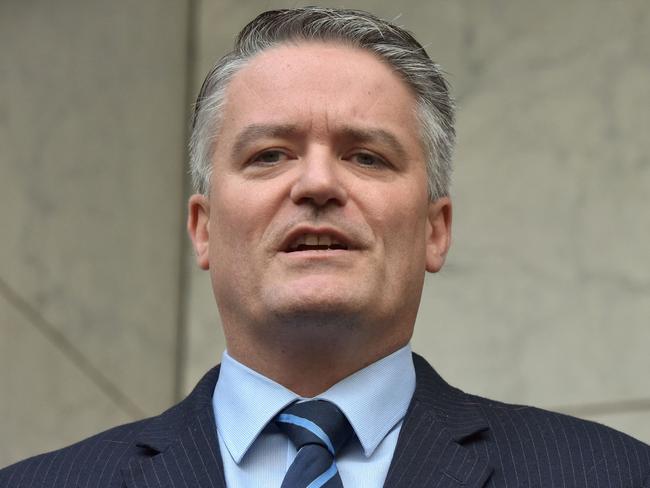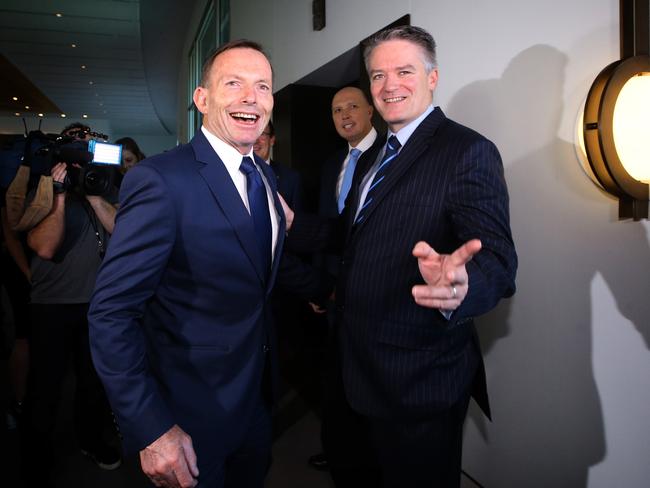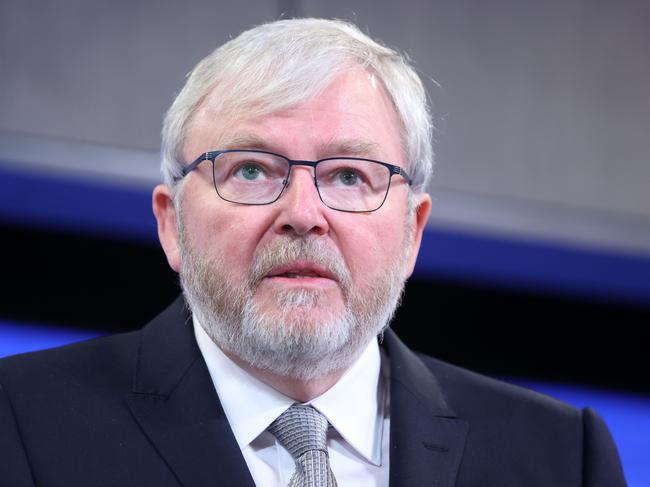Cormann’s OECD role testament to Australia’s strong international status
Mathias Cormann’s rise within his chosen country and now globally should be a reminder of the opportunities our nation offers those with will, skill and determination, Piers Akerman writes.
Opinion
Don't miss out on the headlines from Opinion. Followed categories will be added to My News.
According to the whining woke folk, Australia is a racist, sexist nation at the bottom of Asia which should have been declared a republic two decades ago.
But they are as ever wrong.
Despite the best efforts of the black armband brigade, our nation’s strengths as one of the world’s very few stable democracies has been recognised by the world’s premier international economic institution, the Organisation for Economic Co-operation and Development (OECD), with the appointment of the former finance minister and Coalition senate leader Mathias Cormann as the organisation’s next Secretary-General.
In many ways, Cormann represents the spirit of modern Australia.
A Belgian, he grew up speaking German, he learnt French and Flemish, with English as his fourth language, and migrated to Perth in 1996 with a law degree from the University of Namur and after postgraduate studies at the Katholieke Universiteit Leuven.
Like many migrants, his degrees weren’t recognised and he worked as a gardener at a Perth girls’ school while looking at the opportunities his new country offered.

According to his official biography, he cold-called Liberal Senator Chris Ellison, the chairman of the parliamentary committee on treaties, and offered to work in his office as a volunteer. Within a fortnight he was on the payroll.
From 1997 to 2000 he worked as chief of staff to Rhonda Parker, the state minister for family and children’s services. He later worked as senior adviser to Premier Richard Court (2000–2001) before returning to work for Ellison after his appointment as federal justice minister.
After working in the private sector for HBF, he entered the senate in June, 2007, filling a casual vacancy left after the resignation of Senator Ian Campbell.
When Tony Abbott swept the 2013 election, Cormann became Finance Minister, a position he was to occupy under Abbott, Malcolm Turnbull and Scott Morrison.
Though he supported Abbott in the 2015 leadership spill, he was promoted by Turnbull to take on the role of Special Minister of State in 2016 and leader of the Government in the Senate in 2017.
In the latter role, he became acting Prime Minister when Turnbull was overseas, the deputy Prime Minister Barnaby Joyce had taken personal leave to deal with his own family crisis and Foreign Minister Julie Bishop was in Europe.

In October 2019, he became the longest-serving Finance Minister, having surpassed the record previously held by Nick Minchin. Not a bad record for what we once called a New Australian and he didn’t get to his lofty new position through quotas, or identity politics. He was chosen by the 38 member nations of the OECD on his merits.
His candidature was wholly supported by the Morrison government, which picked up his travel costs as he lobbied nations around the world, much to the disgust of the ABC and other Leftist institutions which saw Cormann as yet another privileged white male who had failed to embrace the uber-woke position on global warming.
His opponents and the usual hand-wringing humanitarian and environmental organisations urged those deciding the new head of the OECD to dismiss his candidacy.
Morrison hailed this rare display of a global body showing common sense as “the most senior appointment of an Australian candidate to an international body for decades”.

He said “as the global economy recovers from COVID-19, the OECD’s role in shaping international economic, tax and climate change policy will be more critical than ever”.
He had spoken to 50 governments in support of the candidacy and also thanked the Opposition for its bipartisan support.
The last Australian mooted for a global position was former Prime Minister Kevin Rudd who saw himself as a global colossus whose natural role after his disastrous and treacherous prime ministership was to be Secretary-general of the UN.
In an exceptional moment of lucidity, Turnbull refused to endorse Rudd’s bid for the top job. His rejection of Rudd was seen to suggest that the former Labor leader was a narcissist, obsessive and an egomaniac (descriptions which could equally apply to Turnbull) but were endorsed by many in the Labor Party.
Cormann is none of the above. His rise within his chosen country and now globally should be a reminder of the opportunities our nation offers those with will, skill and determination.



